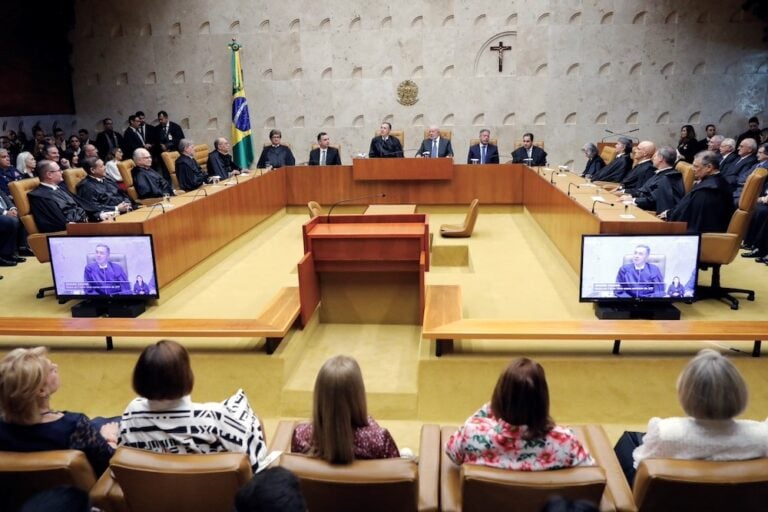(RSF/IFEX) – On 4 September 2003, RSF expressed its outrage over the arrest and imprisonment of Alvanir Ferreira Avelino, a journalist with the daily “Dois Estados”, in Miracema (a city located north of Rio de Janeiro). Ferreira Avelino was ordered to serve a 10-and-a-half month “part-time” jail sentence under a law passed by the former […]
(RSF/IFEX) – On 4 September 2003, RSF expressed its outrage over the arrest and imprisonment of Alvanir Ferreira Avelino, a journalist with the daily “Dois Estados”, in Miracema (a city located north of Rio de Janeiro). Ferreira Avelino was ordered to serve a 10-and-a-half month “part-time” jail sentence under a law passed by the former military dictatorship restricting the expression of opinions.
“It is appalling that a press law from the army regime is still in effect,” said the organisation’s secretary-general, Robert Ménard, in a letter to Miguel Pachá, head of the Rio de Janeiro court. “Prison terms for voicing opinions must be removed from the statute book because they are excessive punishment.”
Ménard also noted that the United Nations special rapporteur on freedom of expression and opinion declared in January 2000 that imprisonment for peacefully voicing opinions is a serious violation of human rights.
Ferreira Avelino was arrested on 29 August at his home in Campos (Rio de Janeiro state) and taken to Carlos Tinoco da Fonseca prison. He had been sentenced in 2001 to 10 months and 15 days in jail for “expressing an opinion” under the military regime’s 1967 press law. His lawyer, Paulo Rangel de Carvalho, said he was the only journalist ever to be convicted under the law.
Ferreira Avelino’s wife, Viviane Terra de Avelino, explained that the journalist spends a day in prison for each week of his sentence. He shares a cell with a dozen other prisoners.
The journalist was sentenced as a result of several libel suits filed against him in 1999 by Alexandre Mesquita, a judge from Miracema. In a series of articles published in “Dois Estados”, Ferreira Avelino had accused the judge of abusing his authority.
In May 2003, Maurício Monteiro, at the time the lawyer responsible for the case, called for the sentence to be struck down because of a two-year limit on press offences. He said the journalist “owed nothing more to the state.”


